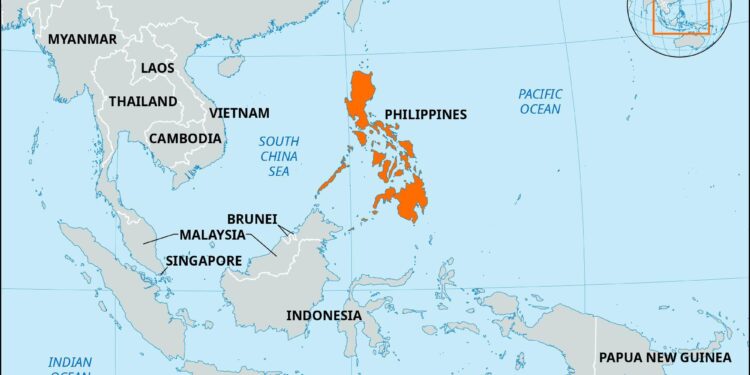In a stark warning to the residents of the capital, Manila Mayor Honey Lacuna has declared a potential health emergency as the city grapples with a mounting rubbish crisis. The situation has escalated rapidly, with overflowing waste piles threatening public health and exacerbating sanitation issues across the densely populated metropolis. As the government scrambles to address the growing waste management challenges, concerns are rising over the implications for the local population and the environment. This article delves into the details of the crisis, the actions being taken by city officials, and the broader implications for public health in the Philippines.
Manila’s Rubbish Crisis: A Public Health Threat Looms Amidst Government Inaction
As Manila grapples with a burgeoning rubbish crisis, public health officials have raised alarm bells regarding the potential for widespread health emergencies. Piled high in neighborhoods and spilling into waterways, the waste has become more than just an eyesore; it threatens the very health of the city’s inhabitants. Filth and decay are breeding grounds for vermin and disease, as the stagnant refuse attracts pests such as rats and mosquitoes, which can carry deadly diseases. The mayor’s assertions underscore a mounting urgency as local health clinics report an uptick in cases of illnesses linked to unsanitary conditions.
Compounding the crisis is the government’s apparent inaction, leaving many citizens to fend for themselves in an increasingly dire situation. Amidst this backdrop, community organizations have begun to mobilize, undertaking clean-up initiatives to alleviate the situation where they can. However, these grassroots efforts are not a sustainable solution to the systemic issue at hand. The lack of a comprehensive waste management plan raises several critical concerns, including:
- Inadequate Waste Disposal Infrastructure
- Insufficient Funding for Waste Management
- Lack of Public Awareness Campaigns
| Health Risks | Potential Consequences |
|---|---|
| Disease Spread | Increased cases of dengue fever, leptospirosis, etc. |
| Respiratory Problems | Heightened asthma and allergy cases due to air pollution |
| Food Safety Issues | Contaminated food supplies affecting local markets |
Urgent Steps Needed to Address Waste Management as Manila Faces Health Emergency
The dire situation in Manila has escalated to a critical point, prompting the mayor to declare a potential health emergency due to the overwhelming accumulation of waste. With rubbish piling up in the streets, there is an urgent need for systemic changes to the city’s waste management strategies. Residents face escalating health risks, including the spread of disease and pollution-related health issues. Immediate actions include:
- Implementing stricter regulations on waste segregation and disposal.
- Increasing the frequency of garbage collection services.
- Launching public awareness campaigns to educate citizens on proper waste management.
In addition to these measures, the mayor has proposed collaborating with local organizations and businesses to establish recycling programs aimed at reducing waste at its source. Engaging the community is vital, as is fostering a sense of shared responsibility among residents. Key initiatives should focus on:
| Initiative | Description |
|---|---|
| Community Clean-Up Drives | Regular events to encourage collective action in cleaning local areas. |
| Recycling Workshops | Sessions to educate families on upcycling and effective recycling practices. |
| Zero-Waste Challenges | Encouraging households to minimize waste and track their progress over time. |
Community Engagement and Policy Reform Essential for Sustainable Solutions to Rubbish Overflow
As the alarming buildup of rubbish in Manila’s streets pushes the city towards a potential health crisis, the call for community involvement alongside robust policy reform has never been more urgent. Local residents and organizations are encouraged to participate actively by:
- Organizing clean-up drives to address immediate overflow issues.
- Fostering awareness about proper waste segregation and disposal methods.
- Engaging with local government to advocate for sustainable waste management practices.
A multi-stakeholder approach is vital for addressing this pressing issue, with policymakers needing to prioritize reforms that support long-term solutions. Proposed measures include:
| Policy Reform | Potential Impact |
|---|---|
| Implementing stricter littering fines | Discourages irresponsibility towards waste disposal |
| Improving waste collection schedules | Reduces overflow incidents |
| Expanding recycling programs | Promotes circular economy and reduces landfill waste |
Such strategic policies, combined with grassroots mobilization, could foster a cleaner, healthier Manila, ensuring the city is equipped to tackle rubbish overflow challenges effectively and sustainably.
To Conclude
In conclusion, Manila’s escalating waste management crisis has prompted urgent warnings from Mayor Honey Lacuna about a looming health emergency. As the city grapples with mounting rubbish and inadequate disposal systems, the health of its residents hangs in the balance. The call for immediate action underscores the need for an effective and sustainable waste management strategy to address the city’s pressing challenges. Local authorities, citizens, and stakeholders must collaborate to prioritize public health and environmental sustainability. As the situation unfolds, the eyes of the nation remain fixed on Manila, where the battle against waste pollution could set a precedent for cities across the Philippines.














